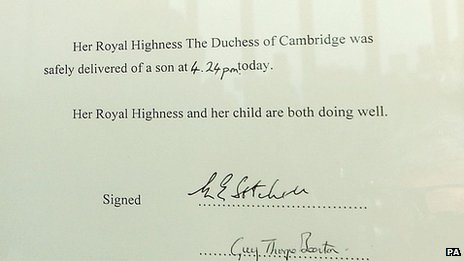With all the "Royal baby" craze comes something that really confuses me. All the news media used pretty much the same sentence to make the announcement:
The Duchess of Cambridge has been delivered of a son.
A couple of questions:
- Why not "The Duchess of Cambridge gave birth to a son" or "delivered a baby", or something along those lines?
- Why is "of" used in this structure, and what purpose does it serve?
From a non-native English speaker's perspective, this sentence doesn't seem to make any sense at all to me.

